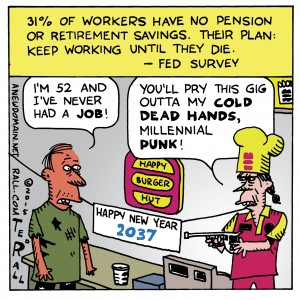Originally published by ANewDomain.net:
In one of the worst kept secrets since NSA spying on Americans, Caitlyn Jenner, the trans woman known until now as Bruce Jenner, who became famous as a record-setting decathlon champion during the 1976 Olympics, now debuts her new identity in a cover story in Vanity Fair magazine.
“A photograph of Ms. Jenner, shot by Annie Leibovitz, accompanied an article on her transition to a woman after long identifying as a man named Bruce … became a sensation on social media when the magazine posted the article online,” reported The New York Times. See the magazine’s YouTube excerpt of the interview below the fold.
This is a big story because Bruce Jenner was a man who, after gender reassignment surgery, is now a woman.
Caitlyn Jenner’s first tweet under her new name — “I’m so happy after such a long struggle to be living my true self. Welcome to the world Caitlyn. Can’t wait for you to get to know her/me” — garnered more than 150,000 followers within minutes.
Public interest has been raised by Jenner’s years as a reality TV star as well as the fact that while he was once a macho athlete whose image embodied the Wheaties cereal box, he is now not a male, but a female.
The New York Post led its coverage of Jenner’s upcoming feature story: “Meet ‘Her.’”
The quotes are because, whereas she was once a he, she is not a “real” she, in the minds of the editors of the Post, because she was born a man.
Much media reaction reflected the Johnny-come-lately status of trans people in the iconography of identity politics.
While gays and, to a lesser extent, lesbians have been considered acceptable among polite company in large coastal cities among educated elites for the better part of a decade or longer, transgenderism still makes liberals uncomfortable enough that it’s okay for them to vaguely allude to their lingering bigotry even while assuming the standard welcoming “hey, that’s great” posture.
The gossip site TMZ reported, for example, that Caitlyn Jenner “did not spell her first name with a ‘K’ because she wants a clean break from the Kardashian moniker.”
Of course, Kaitlyn is no more of a standard spelling than Caitlyn.
“Sources closely associated with Bruce tell us Caitlyn wants to make it clear to her family and the world … she is her own person. That sounds obvious, but we’re told it was an extremely meaningful choice for her … she has never been her own person before, and becoming part of the Kardashian brood would undermine her goal.”
Yes. It does sound obvious. An obvious attempt to reinforce the status of trans people as firmly entrenched, for now, as The Other.







